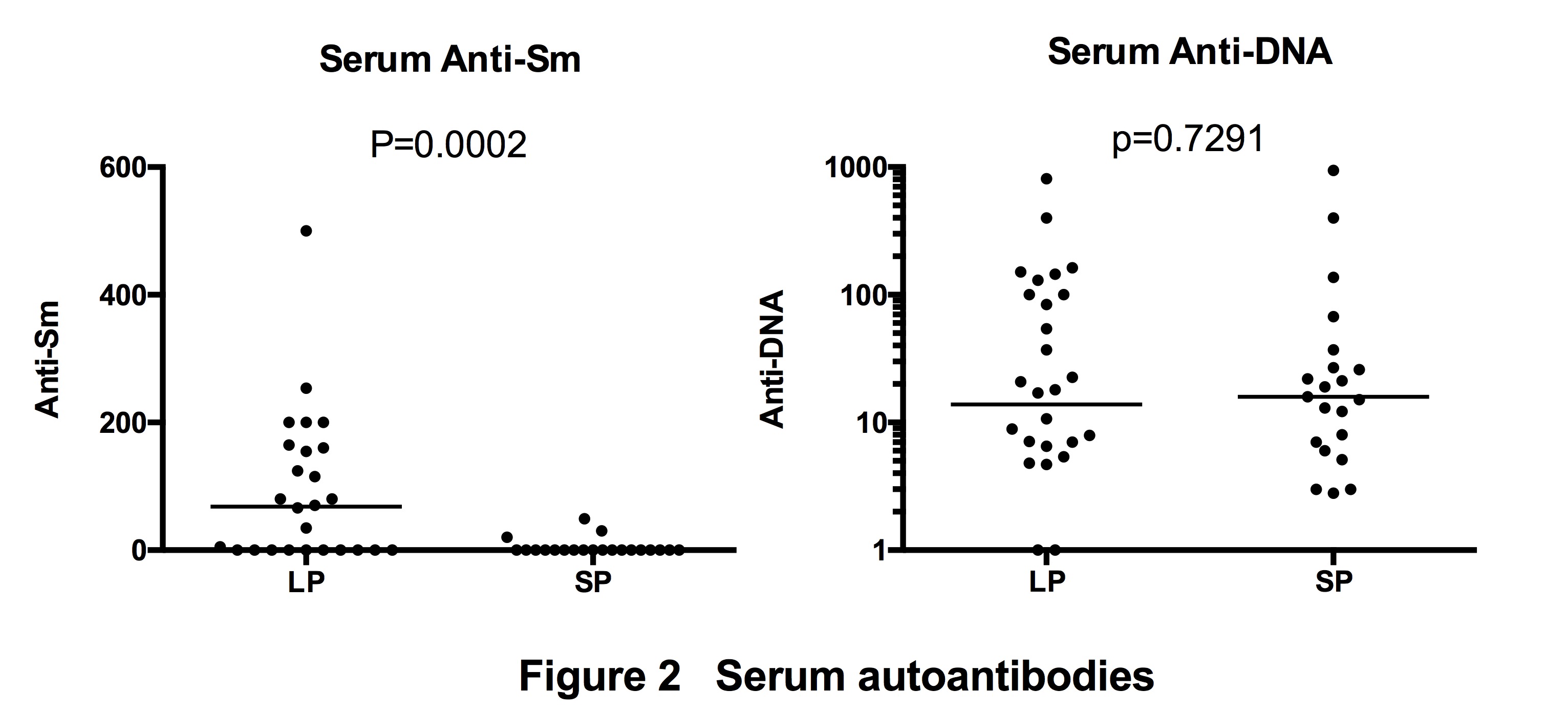Session Information
Date: Sunday, October 21, 2018
Title: Systemic Lupus Erythematosus – Clinical Poster I: Clinical Manifestations and Comorbidity
Session Type: ACR Poster Session A
Session Time: 9:00AM-11:00AM
Background/Purpose: Psychiatric manifestations are relatively common in patients with systemic lupus erythematosus (SLE). Since there are a number of factors causing psychiatric manifestations other than SLE, the diagnosis of lupus psychosis (LP) is often difficult. Especially, it has been sometimes challenging to discriminate steroid psychosis (SP) from LP, since LP usually occurs after the initiation or increase of steroid. The current studies were therefore designed to clarify the differences in clinical features between LP and SP.
Methods: Multicenter retrospective cross-sectional study was performed with 51 SLE patients who presented psychiatric manifestations between 1992 and 2001. The diagnosis of LP and SP was confirmed by retrospective review of the clinical records. Demographic features, clinical manifestations, serum autoantibodies and cerebrospinal fluid IL-6 were compared between LP and SP.
Results: Thirty-one and 20 patients were judged by review of the clinical records as LP and SP, respectively, in the retrospective study. There were no significant differences in age and gender between the 2 groups. However, the prevalence of acute confusional state was significantly higher in LP, whereas the prevalence of mood disorder was predominant in SP (Figure 1). Eleven of the 31 patients with LP were complicated with seizure disorders, whereas no patients with SP presented seizure. Of note, CSF IL-6 levels were elevated above the cut-off value of 4.3 pg/ml in 27 of 31 patients with LP, but in none of 7 patients with SP. Finally, serum anti-Sm antibodies, but not anti-DNA or anti-phospholipid antibodies, were significantly elevated in 31 patients with LP compared with 20 patients with SP (Figure 2).
Conclusion: These results in the current studies highlight the differences in clinical and laboratory features between LP and SP. Thus, acute confusional state and complication of seizure are characteristic of LP, whereas the most prevalent manifestation of SP is mood disorder. Moreover, the data also suggest that CSF IL-6 as well as serum anti-Sm antibodies might be effective tools for differential diagnosis of LP from SP.
To cite this abstract in AMA style:
Hirohata S, Kanai Y, Mitsuo A, Tokano Y, Hashimoto H. Differential Characteristics of Lupus Psychosis and Steroid Psychosis [abstract]. Arthritis Rheumatol. 2018; 70 (suppl 9). https://acrabstracts.org/abstract/differential-characteristics-of-lupus-psychosis-and-steroid-psychosis/. Accessed .« Back to 2018 ACR/ARHP Annual Meeting
ACR Meeting Abstracts - https://acrabstracts.org/abstract/differential-characteristics-of-lupus-psychosis-and-steroid-psychosis/


